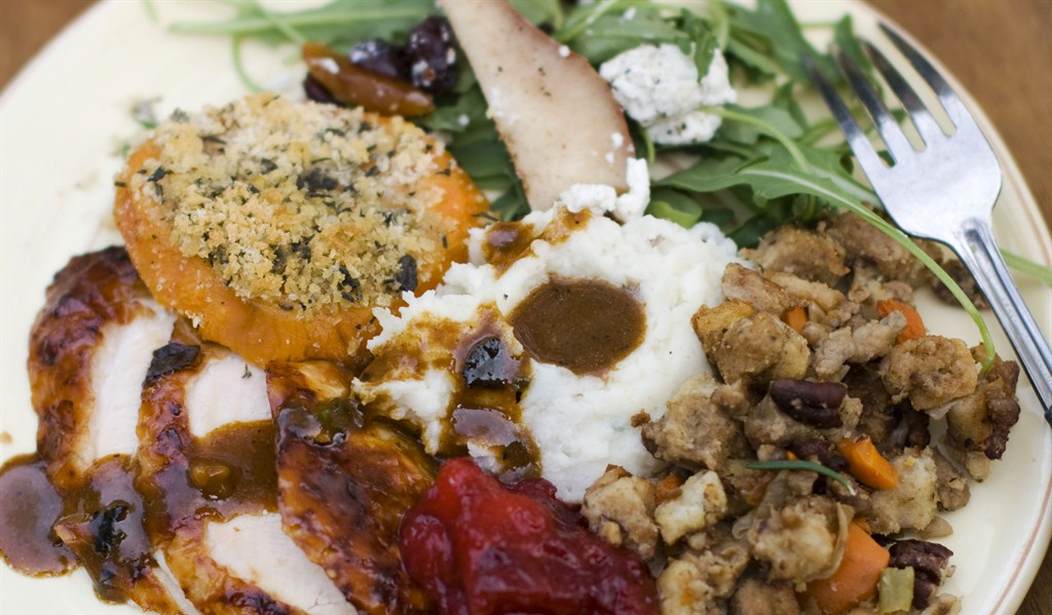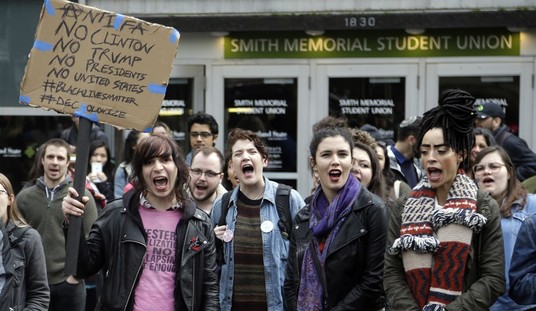A psychologist from Cornell wrote an opinion piece for the NY Times offering advice for confronting family members at Thanksgiving. You’ve probably seen a lot of articles like this one over the years (I wrote about another one here), but this one makes a weird claim of semi-scientific backing. The author first claims that not confronting family members at Thanksgiving is a specific type of anxiety.
I’m an organizational psychologist, and a recurring theme has emerged in my research: People are reluctant to challenge or contradict others because of their fear of insinuating distrust or disapproval of the other person.
This tension, termed “insinuation anxiety,” can dissuade us from speaking up everywhere from dinner parties to life-or-death situations. It’s why we so often follow bad advice, why nurses hesitate to voice concerns to surgeons who make medical errors and why we find it hard to tell our hairdressers that we’re disappointed with our new haircuts. Insinuation anxiety can also explain why co-pilots might withhold critical observations from their captains even when lives are in danger, and why derogatory remarks like racial slurs could go unchallenged at social gatherings.
At Thanksgiving, insinuation anxiety could hold you back from challenging a belligerent family member’s statement, voicing an informed contradictory view or calling out a bigoted remark. The crux of this anxiety doesn’t lie in the mere act of disagreement. Instead, it’s the implication that you’re negatively evaluating the speaker and delivering an unspoken message: “I think you are wrong,” or even, “I believe you’re being prejudiced.”…
I’d just like to suggest that there’s a bit of a difference between nurses who fail to say something when a doctor makes a mistake, co-pilots who remain silent when they think the pilot has missed something and woke activists at the Thanksgiving table. Lives may directly depend on clearing up a medical error or a pilot’s failure to notice something important in the cockpit. No one’s life if at stake at the dinner table over a stray comment from grandpa.
Also, the last paragraph in that excerpt doesn’t make any sense to me. On the one hand the author says insinuation anxiety could cause you to hold back from “calling out a bigoted remark.” On the other hand she says the core of this anxiety is the belief that your disagreement will be mistaken for the message “I believe you’re being prejudiced.” But you can’t have your call-out culture cake and eat it too. If you’re calling out a “bigoted” remark because it’s bigoted, the implication is pretty inescapable that you’re suggesting the speaker was bigoted for saying it.
Rather than try to square this circle, the author moves on to another reason you should be all in for calling out your relatives this Thanksgiving. Failing to do so could make you depressed or even give you cancer.
Continually suppressing our opinions and emotions, especially if they arise from genuine concern or moral standpoints, can have profound consequences. Psychologically, emotional suppression can lead to an increased risk of depression. Physiologically, holding back our feelings is linked to a variety of health problems, such as immune dysfunction, hypertension and cancer. The stress of consistently biting our tongues and the potential resentment toward loved ones can also strain familial ties over time.
This may be true over time. If you’re someone who never speaks up about anything under any circumstances, maybe that will lead to health problems eventually. But suggesting that you really need to exercise this at Thanksgiving is ridiculous. No one is going to get depressed and die because they didn’t unleash all of their leftist talking points this Thursday. Believe it or not everyone will survive without that, including you. The author does acknowledge in passing that not every time and place is the right time to start an argument.
Instead of leaving the table or confronting Uncle Steve directly, consider approaching with curiosity. Perhaps ask: “What do you mean by that?” Or: “I’ve had a different experience. Is now a good time to discuss?”
Or you could just drop it and try to enjoy yourself without demanding ideological compliance from those around you. The commenters seem to get it even if the author doesn’t quite. Here’s the top comment with nearly 700 upvotes.
As someone who hosts, shops for all the food, cooks all the food, and does most of the cleanup, my ask would be to wait until the meal is over, please. Retire to the living room for your discourse, which is important, but can we just enjoy the moment of good food, prepared with love and the fact that we are around the table together, which in and of itself, is a wonder?
Another one:
Respectfully, I disagree. I do not share my personal political, social, or religious opinions at the holiday table, nor do I wish to hear the opinions of others. Surely, conversation can be kept to non-contentions topics, such as how truly dreadful the Jets and Giants are this (and nearly every) season.
Maybe it’s not a great idea to start an argument with a bunch of people have been drinking?
Nope. Keep it light, especially if people’s inhibitions are relaxed with cocktails and wine. Things can go sideways very quickly and a fun gathering about sharing a meal and being grateful turns into a disaster. This article is terrible advice and anyone who’s experienced how easy it is to ruin the entire day is shaking their head in disbelief.
One last comment. I think this is the kind of thing the author is unfortunately encouraging whether she knows it or not.
My wife’s side of the family hosts Thanksgiving, and we used to have political discussions that were respectful and enlightening. Her parents and some extended family are conservative, most of the next generation is more progressive, so it was fun and interesting.
Then, around 2015-2016, my sister-in-law, a staunch progressive, just started going off whenever the discussion turned political. Saying really accusatory, self-righteous and disrespectful things to family members, letting her anger get away from her, and ruining it for everyone.
The rest of us are fine, and we can still have those discussions when she’s not around. From talking with other people, I think a lot of families have the same problem – one self-absorbed person who ruins it for everyone. So, I have to question who this column is addressed to.
If the rest of us have these discussions anyway, as the author recommends, and respond to her provocations, she’ll get mad, start crying, run upstairs or pack up her kids and husband and peel out of the driveway.
And certainly this advice can’t be targeted at her, because she has gone way past the point where venting her emotions is healthy or mature. How do you deal with one adult acting like a complete child?
And as if proving the point one person responded to the comment above with this.
Ruining the occasion isn’t cool but maybe she’s right and she’s attempting to enlighten a bunch of sheep? No one should be identifying as “conservative” anymore IMO.
There’s probably no hope for the poor people who have this guy at their table this year.








Join the conversation as a VIP Member